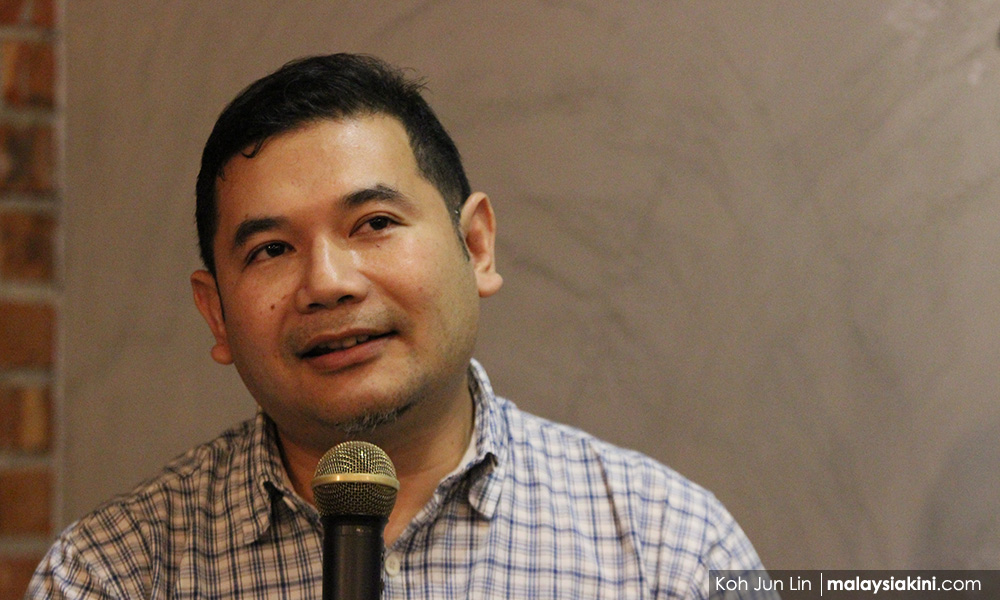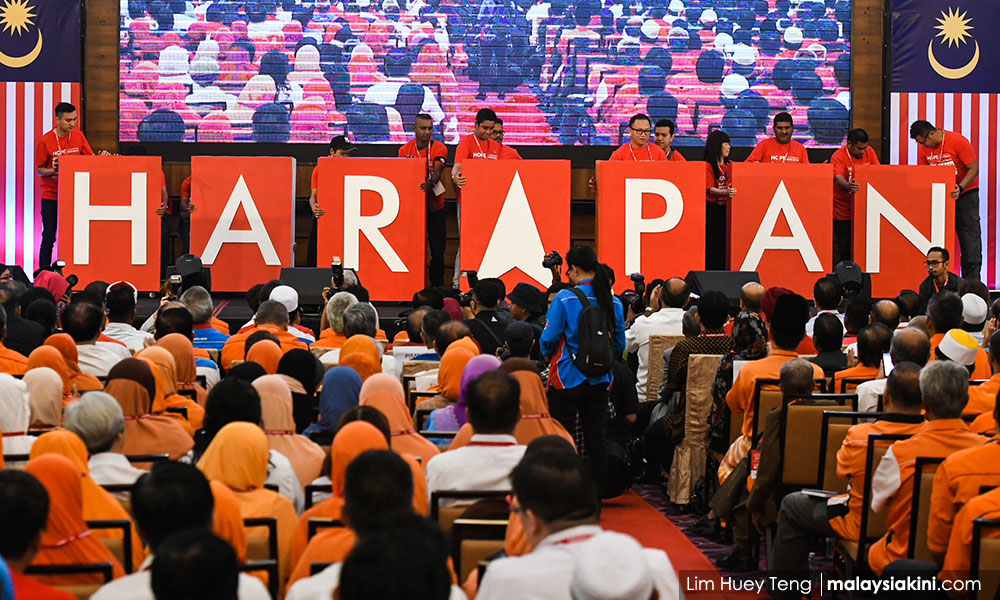
Pakatan Harapan’s seat distribution formula for Peninsular Malaysia will effectively put the necessary safeguards in place to prevent a prime minister from being overly powerful, PKR vice-president Rafizi Ramli said.
He explained that the equitable distribution of seats among Harapan parties meant that if they formed the next federal government, the new prime minister would still need the support of all four parties on policy or risk the government collapsing.
"If we win, no prime minister will ever be as powerful as what Dr Mahathir Mohamad was or what Najib Abdul Razak is today.
"This is even if we don't spell out all the institutional reforms now," Rafizi told Malaysiakini.
It is for this reason, he said, the concluded seat negotiations were more significant than Harapan finalising its prime ministerial candidate.
Both were finalised at Harapan’s meeting last Saturday, a day before the decisions were announced at the coalition’s convention. Rafizi was part of the decision-making process.
It was agreed that Bersatu would be allocated 52 seats, followed by PKR (51), DAP (35) and Amanah (27).
Seat allocations for Sabah and Sarawak would be discussed by the respective state Harapan leaderships, which may have to accommodate the needs of local parties.
Rafizi explained that the present arrangement meant that any prime minister from Harapan would not be able to rule with an iron fist, simply because he (or she) won't have the numbers to do so.
"Even if Bersatu wins 40 seats, it means Umno will only have 40 seats as well. This is a more level playing field in Parliament.
"PKR and DAP will then be also more or less the same size. So anyone who becomes prime minister must be able to basically retain support from even the smallest group,” he said.
In most seats, Bersatu is set to clash against Umno.
Rafizi said negotiations for the seats were based on the principle that no claims could be made to a seat held by another Harapan party’s incumbent MP.
“So you cannot claim the 30 PKR (held) seats, 34 DAP seats and six Amanah seats,” he explained.
PKR surrendered eight marginal seats
Rafizi said other factors taken into consideration included Bersatu’s request to have the most number of seats in the peninsula, as well as to have more seats than the overall total allocated to DAP.
“We eventually decided that we will begin with the numbers first and fill in which seats goes to which party later, after we agreed on the numbers.
“That is why the numbers 52, 51, 35 and 27 were agreed to first,” he said, adding that Bersatu had begun negotiations with an initial demand for 80 seats.

In arriving at the final figure agreed upon by all four Harapan parties, he revealed that the final stretch of negotiations was focused on the distribution of around 20 marginal seats, out of which PKR has claims to 17.
On the part of PKR, Rafizi said his party had surrendered eight out of the 17 marginal seats, using a formula to distribute the bulk of Malay-majority seats previously contested by PKR and PAS to Bersatu and Amanah.
He added that negotiations were “stuck” once PKR was left with nine mixed semi-urban seats, including the two seats in Kuala Lumpur - Setiawangsa and Titiwangsa - of which Bersatu had demanded at least one.
"These (nine) seats are those that PKR had all along maintained we had the best chance to win.
“Until the last 48 hours, there were arguments to and fro,” he said.
However, Rafizi said the ground rules had been established that Bersatu and Amanah should be confined to Malay-majority areas, therefore PKR cannot surrender Setiawangsa, which is a mixed seat.
Thus, it fell upon Amanah to surrender the Malay-majority Titiwangsa to Bersatu, leaving the party with no seat in Kuala Lumpur.
“With the current seat distributions now, it is quite obvious that no one single party can lord over the other. If one of us walk out, even if Amanah walks out, the government will fall. So that's why the negotiations became so intertwined,” he said.- Mkini


No comments:
Post a Comment
Note: Only a member of this blog may post a comment.